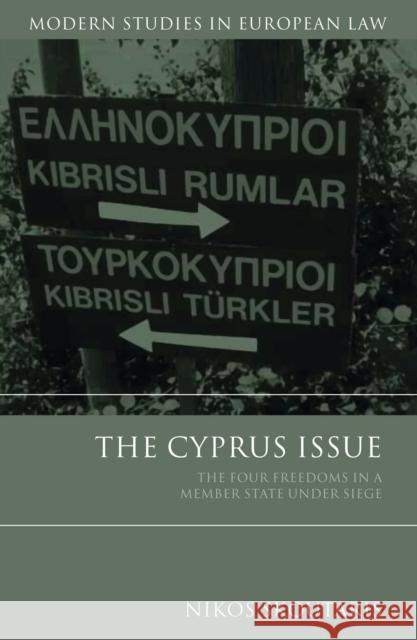The Cyprus Issue: The Four Freedoms in a Member State Under Siege » książka
The Cyprus Issue: The Four Freedoms in a Member State Under Siege
ISBN-13: 9781849460958 / Angielski / Twarda / 2011 / 252 str.
This book examines the interrelationship of the EU legal order and the Cyprus issue. The book addresses a question which is of great significance for the legal order of the EU (as well as for Cypriots, Turks, and Greeks), namely how the EU deals with the de facto division of the island. Despite the partial normalization of relations between the two ethno-religious groups on the island, Cyprus' accession to the EU has not led to its reunification, nor to the restoration of human rights, nor to a complete end to the political and economic isolation of the Turkish Cypriot community. Ironically enough, the accession of the island to the EU actually added a new dimension to the division of the island. According to Protocol 10 on Cyprus to the Act of Accession 2003, the Republic of Cyprus joined the EU with its entire territory. However, due to the fact that its government cannot exercise effective control over the whole island, pending a settlement, the application of the acquis is 'suspended in those areas of the Republic of Cyprus in which the government of the Republic of Cyprus does not have effective control.' Given this unprecedented situation - for an EU Member State - of not controlling part of its territory, the book analyzes the limits of the suspension of the EU acquis in the areas north of the Green Line. In other words, the telos of this particularly challenging research is to map the partial application of EU law in an area where there are two competing claims of authority.











